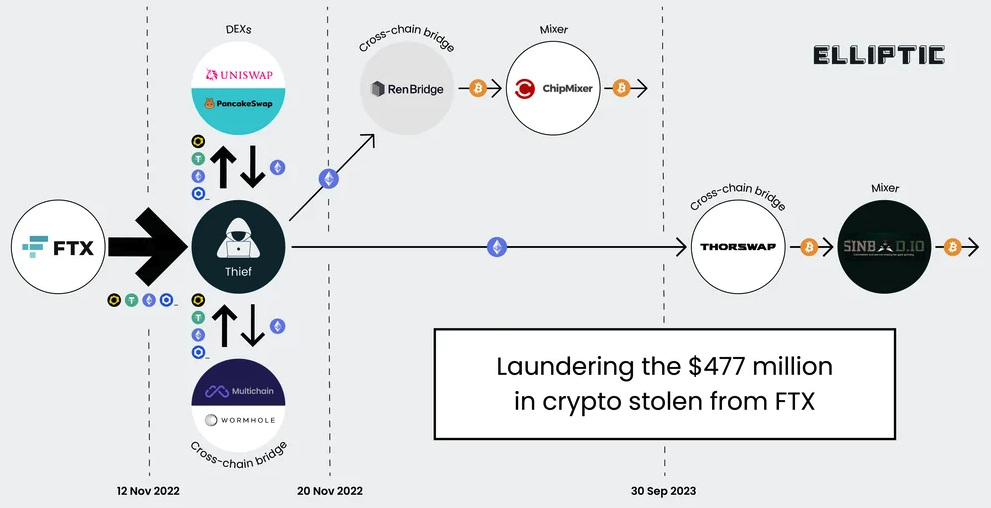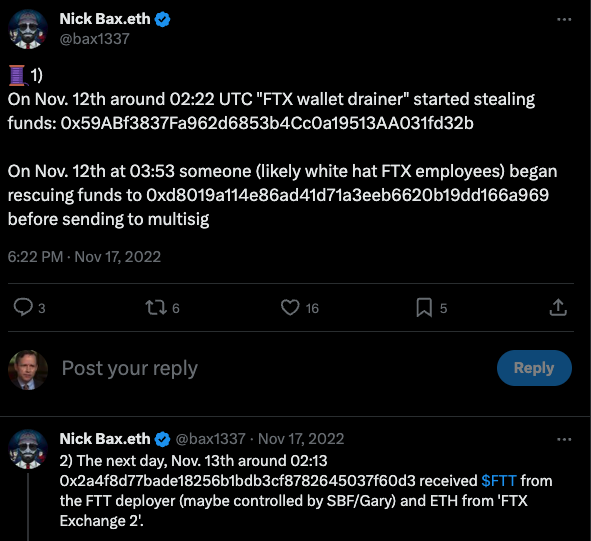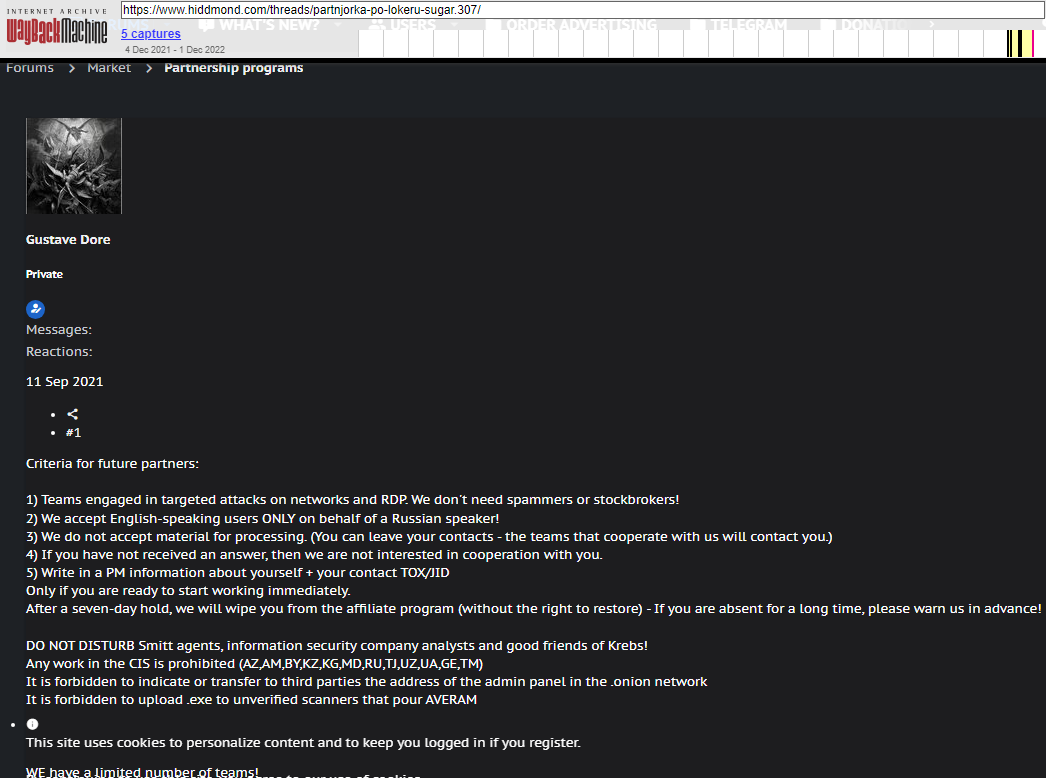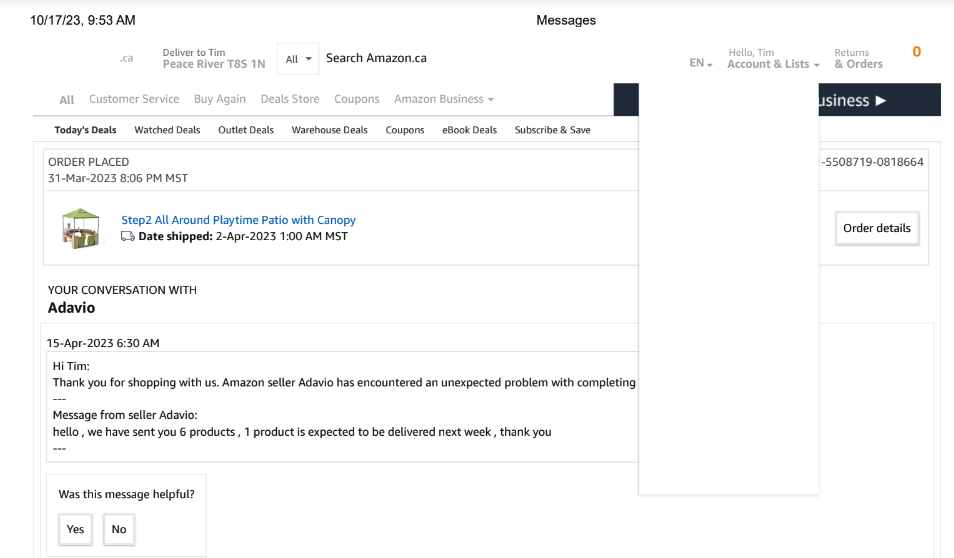On Jan. 9, 2024, U.S. authorities arrested a 19-year-old Florida man charged with wire fraud, aggravated identity theft, and conspiring with others to use SIM-swapping to steal cryptocurrency. Sources close to the investigation tell KrebsOnSecurity the accused was a key member of a criminal hacking group blamed for a string of cyber intrusions at major U.S. technology companies during the summer of 2022.

A graphic depicting how 0ktapus leveraged one victim to attack another. Image credit: Amitai Cohen of Wiz.
Prosecutors say Noah Michael Urban of Palm Coast, Fla., stole at least $800,000 from at least five victims between August 2022 and March 2023. In each attack, the victims saw their email and financial accounts compromised after suffering an unauthorized SIM-swap, wherein attackers transferred each victim’s mobile phone number to a new device that they controlled.
The government says Urban went by the aliases “Sosa” and “King Bob,” among others. Multiple trusted sources told KrebsOnSecurity that Sosa/King Bob was a core member of a hacking group behind the 2022 breach at Twilio, a company that provides services for making and receiving text messages and phone calls. Twilio disclosed in Aug. 2022 that an intrusion had exposed a “limited number” of Twilio customer accounts through a sophisticated social engineering attack designed to steal employee credentials.
Shortly after that disclosure, the security firm Group-IB published a report linking the attackers behind the Twilio intrusion to separate breaches at more than 130 organizations, including LastPass, DoorDash, Mailchimp, and Plex. Multiple security firms soon assigned the hacking group the nickname “Scattered Spider.”
Group-IB dubbed the gang by a different name — 0ktapus — which was a nod to how the criminal group phished employees for credentials. The missives asked users to click a link and log in at a phishing page that mimicked their employer’s Okta authentication page. Those who submitted credentials were then prompted to provide the one-time password needed for multi-factor authentication.

A booking photo of Noah Michael Urban released by the Volusia County Sheriff.
0ktapus used newly-registered domains that often included the name of the targeted company, and sent text messages urging employees to click on links to these domains to view information about a pending change in their work schedule. The phishing sites used a Telegram instant message bot to forward any submitted credentials in real-time, allowing the attackers to use the phished username, password and one-time code to log in as that employee at the real employer website.
0ktapus often leveraged information or access gained in one breach to perpetrate another. As documented by Group-IB, the group pivoted from its access to Twilio to attack at least 163 of its customers. Among those was the encrypted messaging app Signal, which said the breach could have let attackers re-register the phone number on another device for about 1,900 users.
On July 28 and again on Aug. 7, several employees at email delivery firm Mailchimp provided their remote access credentials to this phishing group. According to an Aug. 12 blog post, the attackers used their access to Mailchimp employee accounts to steal data from 214 customers involved in cryptocurrency and finance.
On August 25, 2022, the password manager service LastPass disclosed a breach in which attackers stole some source code and proprietary LastPass technical information, and weeks later LastPass said an investigation revealed no customer data or password vaults were accessed.
However, on November 30, 2022 LastPass disclosed a far more serious breach that the company said leveraged data stolen in the August breach. LastPass said criminal hackers had stolen encrypted copies of some password vaults, as well as other personal information.
In February 2023, LastPass disclosed that the intrusion involved a highly complex, targeted attack against a DevOps engineer who was one of only four LastPass employees with access to the corporate vault. In that incident, the attackers exploited a security vulnerability in a Plex media server that the employee was running on his home network, and succeeded in installing malicious software that stole passwords and other authentication credentials. The vulnerability exploited by the intruders was patched back in 2020, but the employee never updated his Plex software.
As it happens, Plex announced its own data breach one day before LastPass disclosed its initial August intrusion. On August 24, 2022, Plex’s security team urged users to reset their passwords, saying an intruder had accessed customer emails, usernames and encrypted passwords.
KING BOB’S GRAILS
A review of thousands of messages that Sosa and King Bob posted to several public forums and Discord servers over the past two years shows that the person behind these identities was mainly focused on two things: Sim-swapping, and trading in stolen, unreleased rap music recordings from popular artists.
Indeed, those messages show Sosa/King Bob was obsessed with finding new “grails,” the slang term used in some cybercrime discussion channels to describe recordings from popular artists that have never been officially released. It stands to reason that King Bob was SIM-swapping important people in the music industry to obtain these files, although there is little to support this conclusion from the public chat records available.
“I got the most music in the com,” King Bob bragged in a Discord server in November 2022. “I got thousands of grails.”
King Bob’s chats show he was particularly enamored of stealing the unreleased works of his favorite artists — Lil Uzi Vert, Playboi Carti, and Juice Wrld. When another Discord user asked if he has Eminem grails, King Bob said he was unsure.
“I have two folders,” King Bob explained. “One with Uzi, Carti, Juicewrld. And then I have ‘every other artist.’ Every other artist is unorganized as fuck and has thousands of random shit.”
King Bob’s posts on Discord show he quickly became a celebrity on Leaked[.]cx, one of most active forums for trading, buying and selling unreleased music from popular artists. The more grails that users share with the Leaked[.]cx community, the more their status and access on the forum grows.
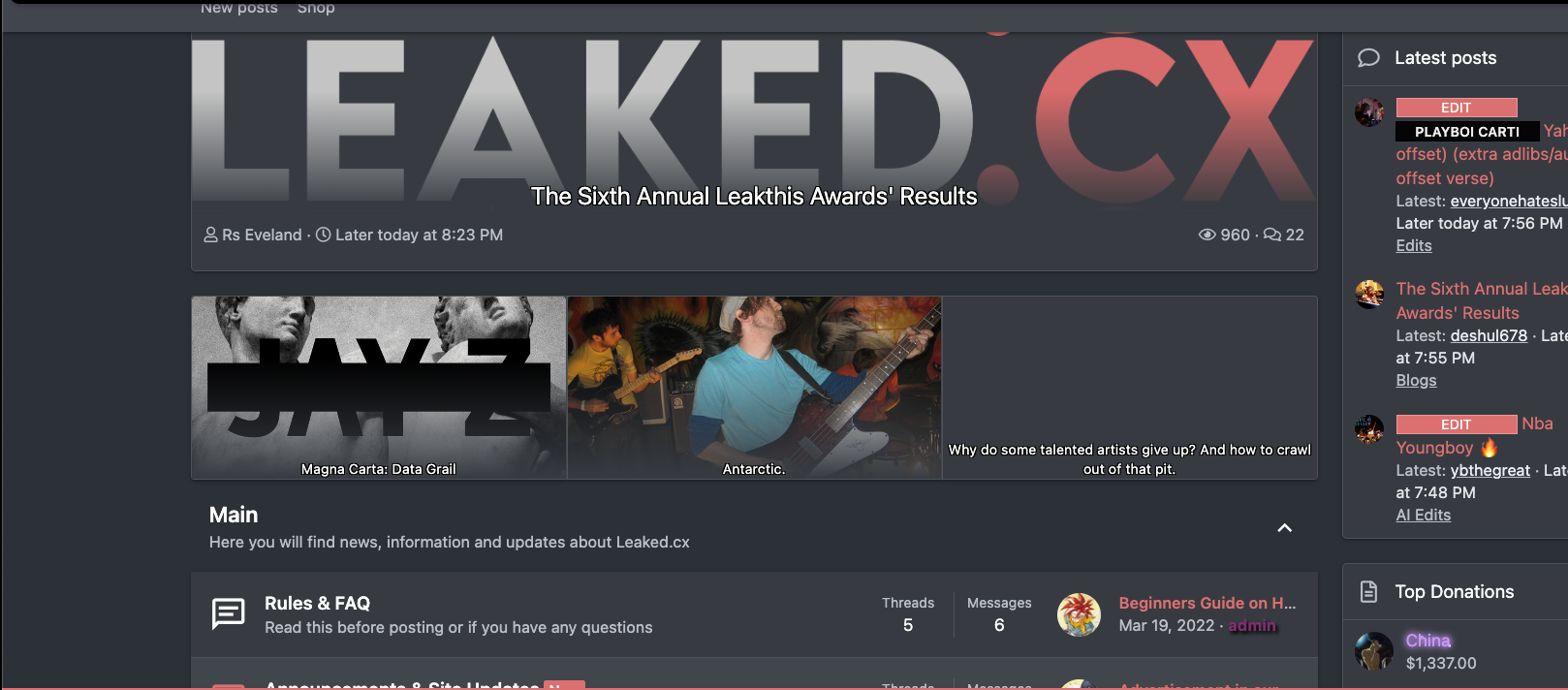
The last cache of Leaked dot cx indexed by the archive.org on Jan. 11, 2024.
And King Bob shared a large number of his purloined tunes with this community. Still others he tried to sell. It’s unclear how many of those sales were ever consummated, but it is not unusual for a prized grail to sell for anywhere from $5,000 to $20,000.
In mid-January 2024, several Leaked[.]cx regulars began complaining that they hadn’t seen King Bob in a while and were really missing his grails. On or around Jan. 11, the same day the Justice Department unsealed the indictment against Urban, Leaked[.]cx started blocking people who were trying to visit the site from the United States.
Days later, frustrated Leaked[.]cx users speculated about what could be the cause of the blockage.
“Probs blocked as part of king bob investigation i think?,” wrote the user “Plsdontarrest.” “Doubt he only hacked US artists/ppl which is why it’s happening in multiple countries.”
FORESHADOWING
On Sept. 21, 2022, KrebsOnSecurity told the story of a “Foreshadow,” the nickname chosen by a Florida teenager who was working for a SIM-swapping crew when he was abducted, beaten and held for a $200,000 ransom. A rival SIM-swapping group claimed that Foreshadow and his associates had robbed them of their fair share of the profits from a recent SIM-swap.
In a video released by his abductors on Telegram, a bloodied, battered Foreshadow was made to say they would kill him unless the ransom was paid.
As I wrote in that story, Foreshadow appears to have served as a “holder” — a term used to describe a low-level member of any SIM-swapping group who agrees to carry out the riskiest and least rewarding role of the crime: Physically keeping and managing the various mobile devices and SIM cards that are used in SIM-swapping scams.
KrebsOnSecurity has since learned that Foreshadow was a holder for a particularly active SIM-swapper who went by “Elijah,” which was another nickname that prosecutors say Urban used.

Shortly after Foreshadow’s hostage video began circulating on Telegram and Discord, multiple known actors in the SIM-swapping space told everyone in the channels to delete any previous messages with Foreshadow, claiming he was fully cooperating with the FBI.
This was not the first time Sosa and his crew were hit with violent attacks from rival SIM-swapping groups. In early 2022, a video surfaced on a popular cybercrime channel purporting to show attackers hurling a brick through a window at an address that matches the spacious and upscale home of Urban’s parents in Sanford, Fl.
“Brickings” are among the “violence-as-a-service” offerings broadly available on many cybercrime channels. SIM-swapping and adjacent cybercrime channels are replete with job offers for in-person assignments and tasks that can be found if one searches for posts titled, “If you live near,” or “IRL job” — short for “in real life” job.
A number of these classified ads are in service of performing brickings, where someone is hired to visit a specific address and toss a brick through the target’s window. Other typical IRL job offers involve tire slashings and even drive-by shootings.
THE COM
Sosa was known to be a top member of the broader cybercriminal community online known as “The Com,” wherein hackers boast loudly about high-profile exploits and hacks that almost invariably begin with social engineering — tricking people over the phone, email or SMS into giving away credentials that allow remote access to corporate internal networks.
Sosa also was active in a particularly destructive group of accomplished criminal SIM-swappers known as “Star Fraud.” Cyberscoop’s AJ Vicens reported last year that individuals within Star Fraud were likely involved in the high-profile Caesars Entertainment an MGM Resorts extortion attacks.
“ALPHV, an established ransomware-as-a-service operation thought to be based in Russia and linked to attacks on dozens of entities, claimed responsibility for Caesars and MGM attacks in a note posted to its website earlier this month,” Vicens wrote. “Experts had said the attacks were the work of a group tracked variously as UNC 3944 or Scattered Spider, which has been described as an affiliate working with ALPHV made up of people in the United States and Britain who excel at social engineering.”
In February 2023, KrebsOnSecurity published data taken from the Telegram channels for Star Fraud and two other SIM-swapping groups showing these crooks focused on SIM-swapping T-Mobile customers, and that they collectively claimed access to T-Mobile on 100 separate occasions over a 7-month period in 2022.
The SIM-swapping groups were able to switch targeted phone numbers to another device on demand because they constantly phished T-Mobile employees into giving up credentials to employee-only tools. In each of those cases the goal was the same: Phish T-Mobile employees for access to internal company tools, and then convert that access into a cybercrime service that could be hired to divert any T-Mobile user’s text messages and phone calls to another device.
Allison Nixon, chief research officer at the New York cybersecurity consultancy Unit 221B, said the increasing brazenness of many Com members is a function of how long it has taken federal authorities to go after guys like Sosa.
“These incidents show what happens when it takes too long for cybercriminals to get arrested,” Nixon said. “If governments fail to prioritize this source of threat, violence originating from the Internet will affect regular people.”
NO FIXED ADDRESS
The Daytona Beach News-Journal reports that Urban was arrested Jan. 9 and his trial is scheduled to begin in the trial term starting March 4 in Jacksonville. The publication said the judge overseeing Urban’s case denied bail because the defendant was a strong flight risk.
At Urban’s arraignment, it emerged that he had no fixed address and had been using an alias to stay at an Airbnb. The judge reportedly said that when a search warrant was executed at Urban’s residence, the defendant was downloading programs to delete computer files.
What’s more, the judge explained, despite telling authorities in May that he would not have any more contact with his co-conspirators and would not engage in cryptocurrency transactions, he did so anyway.
Urban entered a plea of not guilty. Urban’s court-appointed attorney said her client would have no comment at this time.
Prosecutors charged Urban with eight counts of wire fraud, one count of conspiracy to commit wire fraud, and five counts of aggravated identity theft. According to the government, if convicted Urban faces up to 20 years in federal prison on each wire fraud charge. He also faces a minimum mandatory penalty of two years in prison for the aggravated identity offenses, which will run consecutive to any other prison sentence imposed.
